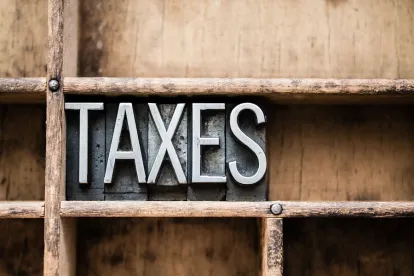The Louisiana Legislature has now sent to conference committee proposed legislation (SB 157) that would exempt the wages of certain nonresident employees from Louisiana individual income taxation, and their employers from withholding and reporting requirements, if the employees only worked in Louisiana for less than 25 days in a calendar year.
If SB 157 becomes law, beginning in 2022, the exemption would apply to wages paid to an employee who performed work-related duties in Louisiana for fewer than 25 days in a calendar year. If, however, the employee worked in the state for more than 25 days in a year, the employer would be required to withhold and remit tax to Louisiana for the entire year, including the first 25 days.
The bill originally had a threshold of 30 days but was amended on the Senate floor before approval. Subsequent House amendments to the bill were rejected by the Senate; thus the bill was sent to conference committee for further discussion and negotiation among the following six appointed members of the Legislature as conferees: Rep. Bishop (Chair of the House Ways & Means Committee), Rep. Stefanski, Rep. Beaullieu, Sen. Allain (the bill’s author, and Chair of the Sen. Revenue & Fiscal Affairs Committee), Sen. McMath, and Sen. Smith.
Specifically, the Senate’s reengrossed version of the bill generally provides that, beginning January 1, 2022, wages paid to nonresident individuals are exempt from individual income tax if all of the following conditions apply:
(1) the employee’s wages are paid for employment duties performed by the individual in Louisiana for 25 or fewer days in the calendar year;
(2) the employee performed employment duties in more than one state during the calendar year;
(3) the wages are not paid for employment duties performed by the employee in his/her individual capacity as a professional athlete, staff member of a professional athletic team, professional entertainer, public figure, or qualified production employee; and
(4) the employee’s income is exempt from taxation by Louisiana under the United States Constitution or federal statute, or the nonresident employee’s state of residence either provides a substantially similar exemption (a reciprocity requirement) or does not impose an individual income tax.
Also, importantly, the exemption would not apply if the nonresident employee has any other income derived from sources within Louisiana for the taxable year.
Under the bill, the employee would be considered present and performing employment duties in Louisiana for a day if the employee performs more of the employee’s employment duties in Louisiana than in any other state during that day. Also, any portion of a day during which the employee is in transit would not be considered in determining the employee’s location of employment duties.
The bill also provides some relief for employers who do not properly follow the proposed law. Specifically, no interest or penalties would be imposed on an employer’s failure to properly deduct and withhold income taxes for a nonresident employee who does not qualify for the exemption, if the employer meets any of the following conditions:
- The employer maintained a time and attendance system designed to allocate wages for income tax purposes among all taxing jurisdictions where its employees perform their employment duties, and the employer relied on data from that system;
- The employer did not maintain a time and attendance system, but the employer relied on its own records of the employee’s location, with such records maintained in the regular course of the employer’s business; or
- The employer did not maintain a time and attendance system, but the employer relied on the employee’s reasonable determination of the time the employee expected to spend performing employment duties in Louisiana, provided (1) the employer did not have actual knowledge of fraud on the part of the employee, and (2) the employer and employee did not collude to evade taxation in making the determination.
This proposed state-level mobile workforce de minimis exemption follows prior unsuccessful efforts by stakeholders at the federal level in Congress to address growing concerns over burdens of state income tax administration and compliance with an ever-increasing remote and mobile workforce, exacerbated most recently by the COVID-19 pandemic. Several mobile workforce bills have been introduced in the United States Congress in past years, including a Senate bill in 2020 with a similar limitation on the taxation and remuneration of nonresident employee wages in any taxing jurisdiction where an employee worked for 30 days or less. Given prior lack of passage of such legislation at the federal level, groups such as the Council on State Taxation (COST) who have been proponents of federal legislation are now also pushing for similar legislation at the state level. In addition, almost half of all states have now passed some form of de minimis exemption on wages from nonresident employees who only work occasionally in the state.





 />i
/>i
